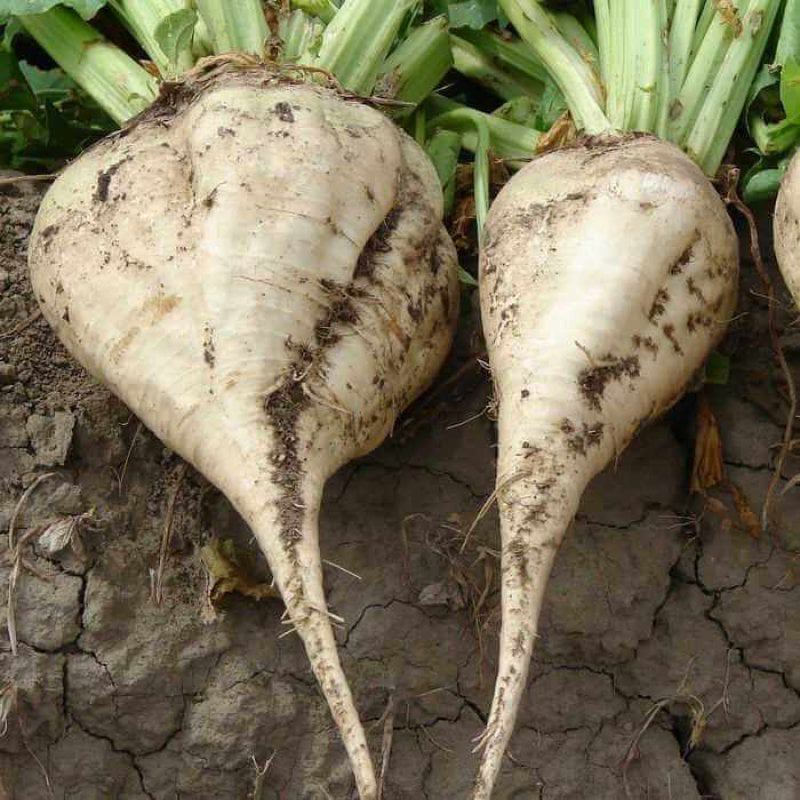Neonicotinoid insecticide ban, drought could cut French sugar beet yields 30-50 percent, USDA finds
Neonicotinoid insecticide ban, drought could cut French sugar beet yields 30-50 percent, USDA finds


France is the largest producer of sugar beets in Europe growing just over 30 percent of EU27+UK’s production in …. 2019/2020. Ban on the use of neonics since 2018 has resulted in large scale crop losses this growing season because of widespread yellows virus, a disease spread by aphids that infested much of the crop this year. Because of the infestation in addition to the drought, French experts estimate that the yield will be down by 30 to 50 percent.
…
In 2016, France adopted a law aiming at increasing biodiversity. Among the various articles, one set a complete prohibition of neonicotinoids (neonics) insecticide use by 2018. Neonics are efficient insecticides developed in the 1980s from nicotine, the chemical naturally present in tobacco. The EU and France banned their use in part because they believe neonics are harmful to pollinators such as bees when improperly used.
…
Outspoken critics of the bill included Minister of Agriculture at the time Stéphane Le Foll, but in spite of concerns the law passed, and in September 2018, sales of neonics were prohibited in France. While neonics are also banned in the EU for outdoor use (they are permitted in greenhouses) fifteen EU member states have been granted exceptions, allowing the insecticide to be used.
One of the arguments used to justify their use on beets is that that the treatment is only on the seeds and sugar beets are harvested before flowering, thus do not present a risk to bees. In addition, alternatives to neoicotinoids are scarce, not as efficient and require aerial spraying which is considered by most scientists to be more harmful to pollinators.
Before the ban in 2018, neonics were widely used for sugar beet seeds as coating on the seeds. Already in 2019, a significant decline was reported to the sugar beet yield. In 2020 France’s mild spring led to an aphid infestation on young sugar beet plants. Aphids spread many diseases including viruses such as the beet yellows virus (BYV) which leads to beet dwarf jaundice, a disease that can cut yields by half. Because of the infestation in addition to the drought, French experts estimate that the yield will be down by 30 to 50 percent.
Read the original post

 | Videos | More... |

Video: Nuclear energy will destroy us? Global warming is an existential threat? Chemicals are massacring bees? Donate to the Green Industrial Complex!
 | Bees & Pollinators | More... |

GLP podcast: Science journalism is a mess. Here’s how to fix it

Mosquito massacre: Can we safely tackle malaria with a CRISPR gene drive?

Are we facing an ‘Insect Apocalypse’ caused by ‘intensive, industrial’ farming and agricultural chemicals? The media say yes; Science says ‘no’
 | Infographics | More... |

Infographic: Global regulatory and health research agencies on whether glyphosate causes cancer
 | GMO FAQs | More... |

Why is there controversy over GMO foods but not GMO drugs?

How are GMOs labeled around the world?

How does genetic engineering differ from conventional breeding?
 | GLP Profiles | More... |

Alex Jones: Right-wing conspiracy theorist stokes fear of GMOs, pesticides to sell ‘health supplements’




 California, Washington, Oregon forge immunization alliance to safeguard vaccine access against federal undermining
California, Washington, Oregon forge immunization alliance to safeguard vaccine access against federal undermining Trust issues: What happens when therapists use ChatGPT?
Trust issues: What happens when therapists use ChatGPT? Fighting deforestation with CO2: Biotechnology breakthrough creates sustainable palm oil alternative for cosmetics
Fighting deforestation with CO2: Biotechnology breakthrough creates sustainable palm oil alternative for cosmetics Viewpoint — Fact checking MAHA mythmakers: How wellness influencers and RFK, Jr. undermine American science and health
Viewpoint — Fact checking MAHA mythmakers: How wellness influencers and RFK, Jr. undermine American science and health 30-year-old tomato line shows genetic resistance to devastating virus
30-year-old tomato line shows genetic resistance to devastating virus Viewpoint: Video — Big Solar is gobbling up productive agricultural land and hurting farmers yet providing little energy or sustainabilty gains
Viewpoint: Video — Big Solar is gobbling up productive agricultural land and hurting farmers yet providing little energy or sustainabilty gains The free-range chicken dilemma: Better for birds, but with substantial costs
The free-range chicken dilemma: Better for birds, but with substantial costs ‘You have to treat the brain first’:Rethinking chronic pain with Sanjay Gupta
‘You have to treat the brain first’:Rethinking chronic pain with Sanjay Gupta
